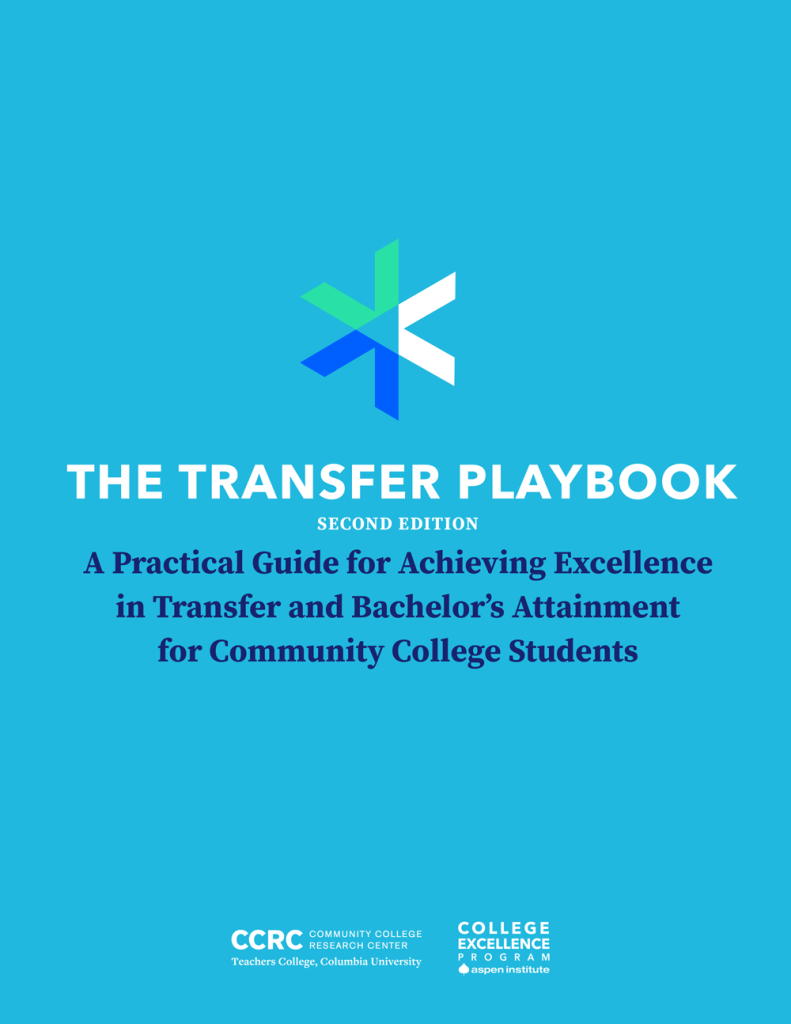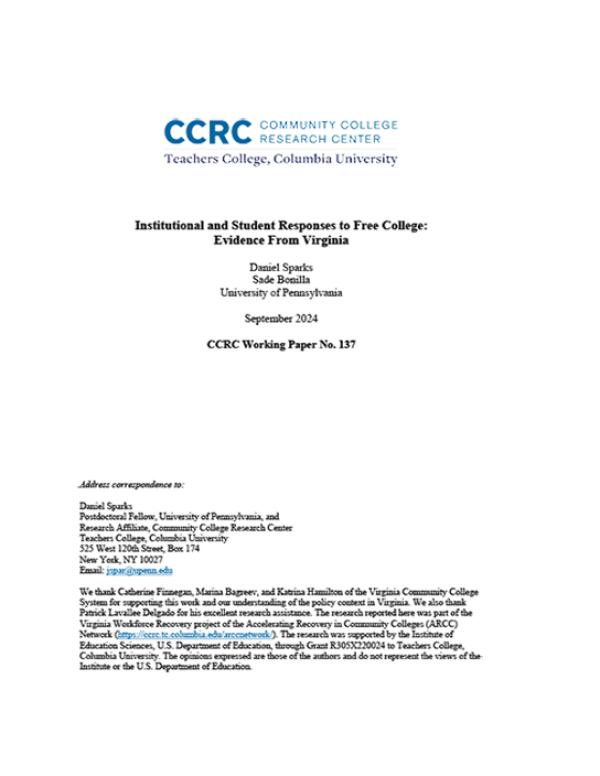The Transfer Playbook (Second Edition): A Practical Guide for Achieving Excellence in Transfer and Bachelor’s Attainment for Community College Students

The second edition of the Transfer Playbook provides guidance for achieving excellence in transfer and bachelor’s attainment for community college students based on practices observed at exemplary community college and university partnerships.
The Net Benefits of Raising Bachelor’s Degree Completion Through CUNY’s ACE Program

This Center on Poverty and Social Policy working paper estimates the incremental long-run benefits and costs of participation in CUNY’s Accelerate, Complete, and Engage program, aimed at increasing bachelor’s completion rates.
Lessons on Scaling Corequisites: The City University of New York’s Transition From Prerequisite to Corequisite Academic Support

This CAPR report draws on interview data with faculty and staff to examine how seven City University of New York colleges transitioned to fully scaled corequisite courses in English and math and the implications of their choices for early implementation.
The Postsecondary Outcomes of High School Dual Enrollment Students: A National and State-by-State Analysis

Using NSC data, this report presents national and state-by-state findings on the postsecondary enrollment and completion outcomes of high school students who began taking dual enrollment college courses in fall 2015, tracked for four years after high school.
Institutional and Student Responses to Free College: Evidence From Virginia

Using administrative data, this paper analyzes Get a Skill, Get a Job, Get Ahead (G3)—a free community college initiative that Virginia implemented in 2021—and shows that both institutions and students responded to the tuition-free messaging and eligibility criteria.
